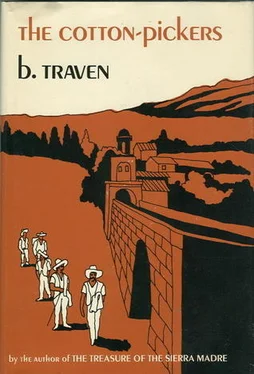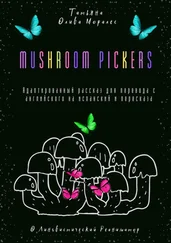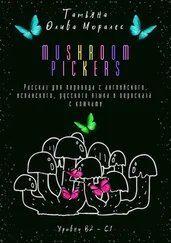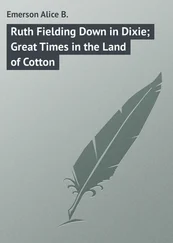B. Traven - The Cotton-Pickers
Здесь есть возможность читать онлайн «B. Traven - The Cotton-Pickers» весь текст электронной книги совершенно бесплатно (целиком полную версию без сокращений). В некоторых случаях можно слушать аудио, скачать через торрент в формате fb2 и присутствует краткое содержание. Год выпуска: 1969, Издательство: Hill and Wang, Жанр: Проза, на английском языке. Описание произведения, (предисловие) а так же отзывы посетителей доступны на портале библиотеки ЛибКат.
- Название:The Cotton-Pickers
- Автор:
- Издательство:Hill and Wang
- Жанр:
- Год:1969
- ISBN:нет данных
- Рейтинг книги:3 / 5. Голосов: 1
-
Избранное:Добавить в избранное
- Отзывы:
-
Ваша оценка:
- 60
- 1
- 2
- 3
- 4
- 5
The Cotton-Pickers: краткое содержание, описание и аннотация
Предлагаем к чтению аннотацию, описание, краткое содержание или предисловие (зависит от того, что написал сам автор книги «The Cotton-Pickers»). Если вы не нашли необходимую информацию о книге — напишите в комментариях, мы постараемся отыскать её.
—Book World
The Cotton-Pickers — читать онлайн бесплатно полную книгу (весь текст) целиком
Ниже представлен текст книги, разбитый по страницам. Система сохранения места последней прочитанной страницы, позволяет с удобством читать онлайн бесплатно книгу «The Cotton-Pickers», без необходимости каждый раз заново искать на чём Вы остановились. Поставьте закладку, и сможете в любой момент перейти на страницу, на которой закончили чтение.
Интервал:
Закладка:
“Need any help?” I asked in Spanish.
“Si, señor. Do you know the way to Ixtlixochicuauhtepec?” A true son of the land, he had no difficulty pronouncing the name of the place.
“No,” I answered, “but I’m just about to find out. Keep close to us, if you wish; we’re all going cotton-picking at six centavos a kilo. As soon as we find out which way to go to Mr. Shine’s farm, we’ll get started.”
Get started! If only I knew which way to go.
The station meanwhile, ten minutes after the one train of the day had departed, had emptied and lay drowsy and deserted in the tropical heat, as only a station in this part of America can. The mail bag, which looked all bag and no mail, had already been carried off. The goods — a few cases of merchandise, two drums of kerosene, five rolls of barbed wire, a bag of sugar — were lying still unclaimed on the blistering hot platform.
The wooden shack where tickets were sold and luggage was weighed had been padlocked. The man responsible for the official duties had left the station before the last car had gone by. Even the little old Indian woman who, like her counterparts at all the village depots of the countryside, appeared at every train arrival with her reed basket containing tortillas and two bottles of cold coffee, even she was already a fair distance away, slipping through the tall grass toward home. She was always the last to leave the platform. Although she never sold anything, she came every day to meet the train. The coffee she brought to the station was probably the same for weeks on end. Evidently the travelers suspected this; otherwise they might have given the old woman a chance to earn something now and then, especially in that heat. But anyhow the ice water that was available on the trains free of charge put the old woman’s cold coffee right out of business.
My five companions had seated themselves happily on the ground near the wooden shack — in the shade; though it must be admitted that, as the sun was standing vertically above us, it took a man of some experience to discover where the shade actually was.
Time did not matter to them; and since they knew that I wanted to go where they wanted to go they left the reconnaissance to me. Without formal election I had become the leader of our little group. They would go when I went, and not before; and they would follow me even if I took them to Argentina.
There was not a house to be seen anywhere near the station. Looking off in the direction taken by the last group of departing natives, whom I could see still making their way through the grass, I suggested to my companions that we follow them, with the idea that they might lead us into the town or direct us to it.
It didn’t take us long to catch up with them. “Never heard of a farm or a place by that name, señor,” they answered when I approached them. “But come along with us. Surely in the town someone will know the way.”
We soon reached the village. The dwellings there were crude huts surrounded by banana plants and tall mango trees which, although never tended in these regions, bear great quantities of fruit. The little fields were sown with maize and beans well beyond the needs of the few people there.
It would have been quite pointless to go to one of these huts and ask the way to Ixtli…. If these people gave an answer at all, it would be an unreliable one. Not that they would deliberately mislead us, but out of sheer politeness they would want to give a pleasant answer and avoid the necessity of saying “I don’t know.”
Besides the huts, there were two wooden buildings in the village. In one of them, our friends pointed out, lived the stationmaster, of whom we should ask the way; the other was a poolroom.
I went to the stationmaster’s house, but he did not know where Ixtli… was. He added politely that he had never heard of the place but, then, he’d only recently been transferred to this town. So I walked over to the poolroom, where I found an intelligent-looking man inside idly leaning against a pool table. He greeted my entrance with an inviting smile.
“Siento mucho, señor,” he answered my question, “I’m awfully sorry to disappoint you, but despite my living here for the last five years I’ve never heard of that place. By all means it has a very uncommon name as far as our state is concerned. Now, señor, I don’t want to appear impolite, but if you don’t mind telling me what your business is at that village, if it is a village, that just might tickle my memory and give me a tip to that particular place among the many I know. You see, then I might be able to help you out in your trouble.”
“Now here we come perhaps closer to a solution. I’m interested in cotton, so, then, it must be a place where cotton is grown.”
He brightened up visibly, apparently relieved that he could help me. I had judged him from the first to be the good-neighbor type.
“Since you mention cotton, señor, I remember that about three years or so ago there arrived here one day a line of heavy trucks loaded to the top with bales of freshly harvested cotton, bringing it to this depot from where it would be taken by train to the nearest port. I understood it was to be loaded on ships and taken to Europe or one of those foreign countries with a crazy name. They all came from that direction.”
With this he waved an arm vaguely, much as a huge bird would flap its wing as it tried to lift itself into the air. The direction indicated by his waving, rolling arm could have been to the north as well as to the west or the east. However, it indicated at least one direction which positively should not be taken.
“How far do you think it might be to that place where these people came from?”
“Far as I can remember these gringos saying, because you should know that they are all gringos holding those lands, they had left by six in the morning and when they arrived here it was noon. So you can figure out for yourself the distance, considering that there’s no road and they surely had to cut their way through the bush with a machete — certainly not an easy way to travel. Not so unlikely a few traces of that road they cut might still be visible enough to follow.”
“Gracias mil veces, señor,” I broke out happily, “thank you a thousand times. You certainly did me a great favor at a moment when I felt as though the world were sinking under my feet.” I shook his hands vehemently and did so joyfully.
“Now we’re finally getting somewhere,” I told myself over and over again, walking back to where I had left the group of hungry job-seekers, of whom I was the hungriest, to tell the truth.
We decided to leave right away and go as far as we could before sunset, after which it would be next to impossible to discover and follow the traces of the road that might still be there, as that good man in the poolroom had indicated.
2
So off we marched in good enough spirits. The six of us felt as happy in one another’s company as brothers who had unexpectedly met in some strange out-of-the-way place after a long separation.
Above us the scorching tropical sun, about us the dense impenetrable bush; the eternally virgin bush of the tropics with its indefinable mystique, its fantastic secret animal life, its dream-shaped, dream-colored plants, its unexplored treasure of stone and metal.
But we were not explorers, nor were we gold or diamond diggers. We were workers, and set more store on certain earnings than on the uncertain promise of the millions that may have been hidden in the bush around us, waiting to be discovered.
We hiked through the wild unbroken bushland, sweating under a tropical sun, without the faintest idea where and when we would locate Mr. Shine’s cotton plantation. It might be fifty miles away, perhaps sixty. What if it were eighty or a hundred miles? We simply had to find work.
Читать дальшеИнтервал:
Закладка:
Похожие книги на «The Cotton-Pickers»
Представляем Вашему вниманию похожие книги на «The Cotton-Pickers» списком для выбора. Мы отобрали схожую по названию и смыслу литературу в надежде предоставить читателям больше вариантов отыскать новые, интересные, ещё непрочитанные произведения.
Обсуждение, отзывы о книге «The Cotton-Pickers» и просто собственные мнения читателей. Оставьте ваши комментарии, напишите, что Вы думаете о произведении, его смысле или главных героях. Укажите что конкретно понравилось, а что нет, и почему Вы так считаете.











